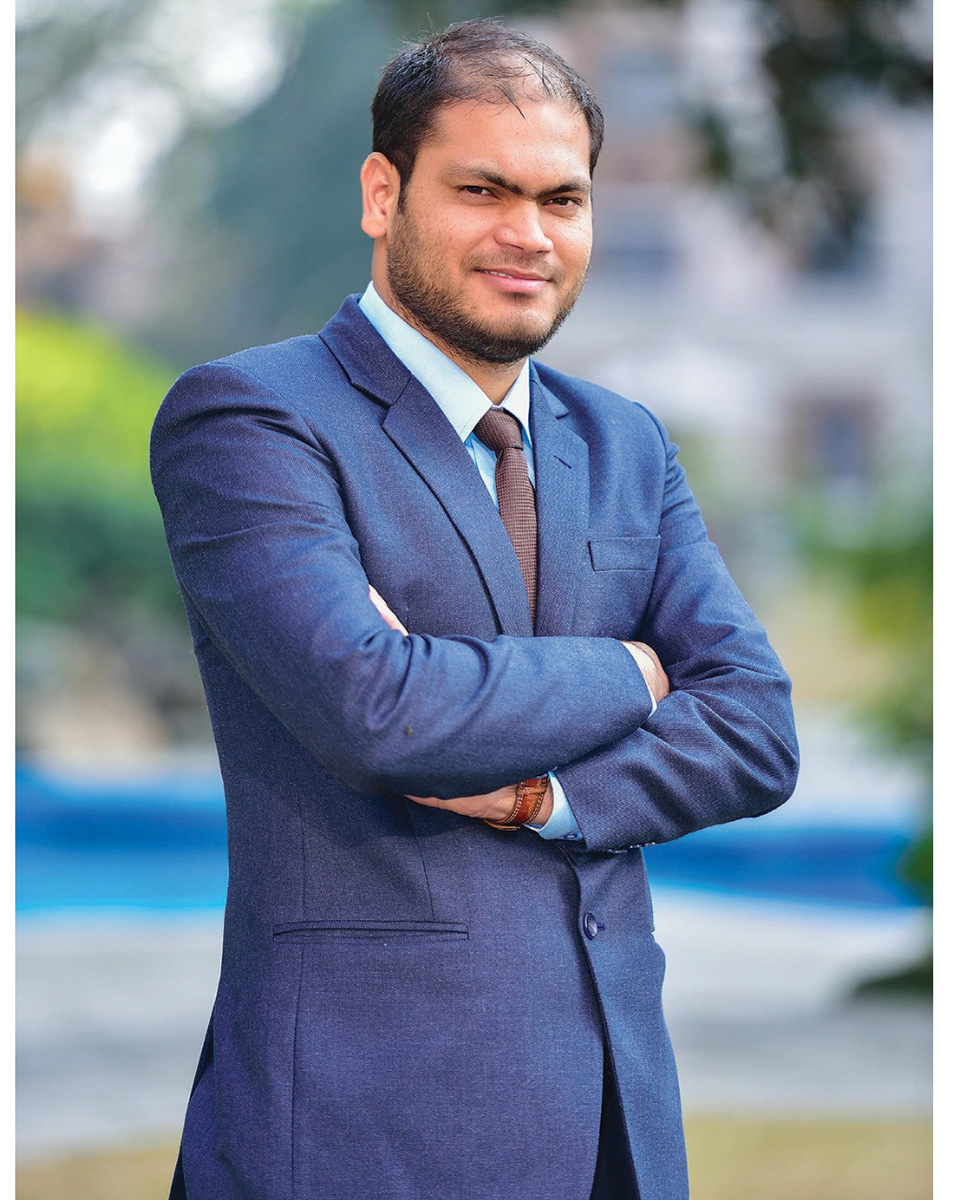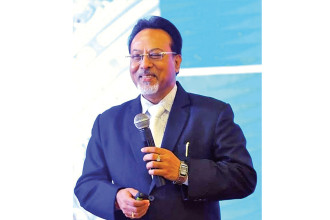
Sunil KC is CEO and founder of Asian Institute of Diplomacy and International Affairs (AIDIA), an independent, non-partisan, non profit foreign policy think tank. KC started his career as a radio presenter at the age of 13 during the Maoist conflict. He is a founding member of Radio Tulsipur FM in Dang and a social activist besides being an entrepreneur and documentary filmmaker. AIDIA organises national and international conferences and programs, track dialogues related to economics and diplomacy. Recently, it organised a conference on ‘Revisiting Nepal’s Foreign Policy in The Contemporary Global Power Structure’. Shortly after the conference, the government formed a Foreign Policy Review Task Force comprising of experts from different sectors. In an interview with Business 360, Sunil KC shared AIDIA’s focus on economic diplomacy.
How and why was the Asian Institute of Diplomacy and International Affairs established? Since my early childhood, I had interest in working on foreign policy. I found many INGOs and NGOs working for poverty alleviation, climate change and education, but no institution that works to bridge the gap between government and businessmen, or business and diplomacy. I felt the need for an organisation to practice track II diplomacy with nations that Nepal has foreign relations with and also those countries with which Nepal lacks diplomatic relations. I felt the need for a think tank working on foreign policy with a particular focus on business diplomacy. AIDIA was established to fulfill the gap and to promote national interests practicing track I and track II diplomacy.
How has AIDA contributed to foreign policy and international relations of the country so far? Diplomacy is really all about economic diplomacy. Whichever country creates diplomatic relation with Nepal has interests in promoting trade. The major geo political interest is always economic interests. We have made considerable contributions. Ethiopia is a country with which Nepal used to lack diplomatic relations. The country which used to be underdeveloped like Nepal now has double digit economic growth. We propagated diplomatic relations and economic connectivity with Ethiopia. As a result, Rajendra Giri, Chairman of Kailash Bank was appointed as Consulate by the Ethiopian government. Recently we organised a historic conference to pressurise the government to define foreign policy focusing primarily on economic diplomacy. Shortly after the conference, the government appointed a foreign policy review committee which included most of the speakers invited by us. We will soon be submitting the recommendation report received from the committee which will be of great help to the government to devise the foreign policy. At the recently concluded Infrastructure Summit, Confederation of Nepalese Industries (CNI) has expressed interest in inviting investors into the hydropower sector of Nepal. We rather prioritised rail connectivity. They approved our plan. During the Prime Miniter’s visit to India, we convinced the Indian side to develop railway connectivity between Kathmandu and Calcutta and Kathmandu and Delhi. Suresh Prabhu, Minister of Railway, GoI, pledged investment in Nepal and expressed interest in establishing railway connectivity during the Nepal Infrastructure Summit. Therein as well we played a crucial role. We recommended Investment Board of Nepal (IBN) to bring in investors beyond our two neighbours during the Investment Summit. The IBN CEO agreed and Bangladeshi investors were invited. As a result they were second to China in committing highest FDI. It was a huge achievement for us as Bangladesh can be the gateway for Nepal to be connected with South East Asia. So far bilateral economic summit has not been organised. We held discussions with Bangladesh government in this regard. As a result, Nepal Bangladesh Economic Forum came into existence in 2016. Following its formation, Golchha and Vaidya Group are working to establish garment factories among other projects. Bangladesh construction companies are working in Nepal. We have asked the Bangladesh government to work in the energy sector through Public Private Partnership (PPP) model. Initially, they hesitated fearing India would not concede, but after holding a series of discussions, they have agreed and sent Memorandum of Understanding (MoU) to the Nepalese government. Our government is slow to respond and we are still lobbying to make it happen.
What are the areas of focus for AIDIA? Foreign policy, economic diplomacy and academics are our major areas of focus. Mid western University in Surkhet has faculty of International Relations and Diplomacy. We are helping it redesign and make the course effective. We are sharing foreign experts with them and cooperating to strengthen IRD curriculum in consultation with foreign universities. Along with that we have encouraged them to introduce a course in hydropower education at the Bachelor degree level, the first of its kind in the country. We always need to hire technical manpower required for hydropower from outside Nepal; hydropower education must be initiated to fulfill the demand of technical manpower from inside the country. Soon they will be launching a Master’s program in hydropower education. We are working to increase connectivity with some of the best foreign universities. We are also sharing our expertise to help them build an university in Kathmandu to provide Bachelor and Master degrees in International Relations. Nepal is considered weak in foreign policy and diplomacy. We had repeated mishaps like the recent trade embargo by India. What is lacking? We lack defined foreign policy. At the same time our political willpower is very low. Similarly, Ministry of foreign Affairs is not lobbying as much as it should in the political circle. We need a defined policy to deal with China, India, United States, the European Union or any of the Arab countries. To attract investment we need a defined foreign policy. Maximum utilisation of our resources and our foreign missions have failed due to lack of a defined foreign policy.
Can you elaborate AIDIA’s role in fostering entrepreneurship? Basically we are working to create favourable environment to attract FDI. If any foreign company expresses interest to invest here, we recognise compatible domestic companies and hold business to business (B2B) meetings between them. We play the role of research advisor between foreign and domestic companies and conduct research on risk analysis for them. We also work as facilitators between them and the government.
What are AIDIA’s future plans? We have plans to launch a Masters course in International Relations and Diplomacy under the AIDIA banner to produce skilled diplomats, foreign policy analysts, and foreign policy lecturers. The Masters program is expected to be launched by 2018 in partnership with Chinese and Indian universities. It will be different to TU and Mid Western University curriculum. We also have plans to establish branches of AIDIA in India and Bangladesh to further our work on economic diplomacy.






